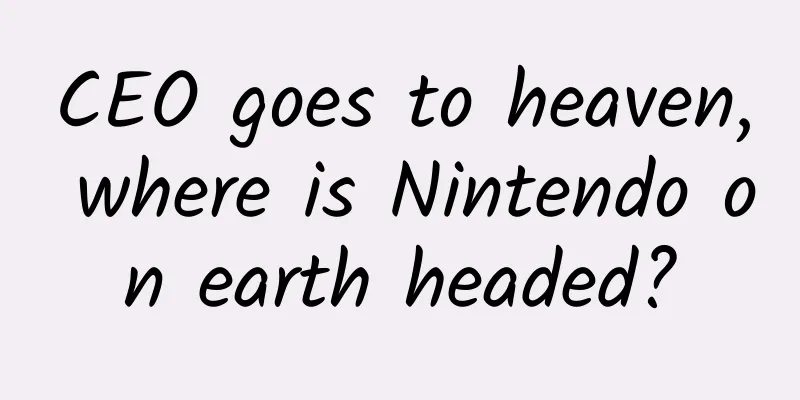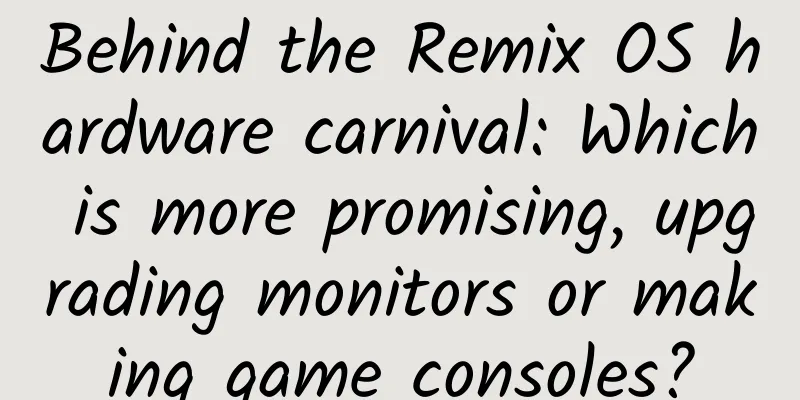CEO goes to heaven, where is Nintendo on earth headed?

|
Nintendo recently issued a brief obituary: "Nintendo Co., Ltd. announces with deep regret that President Satoru Iwata passed away on July 11, 2015." Satoru Iwata was born on December 6, 1959 in Sapporo, Hokkaido, Japan. He had a strong interest in games since high school. After graduating from university, he joined Nintendo's HAL Laboratory in the 1980s and participated in the development of games such as "Balloon Fight" and "EarthBound". He became a director of the company in 2000 and was appointed as the fourth president of Nintendo in 2002. During his tenure as president, Iwata led the development of various game products including Wii, DS, Wii U, and GameCube, pushing Nintendo's video game industry to its peak. His philosophy of "developing simple and fun games" allowed players to return to the essence of fun in games. Unfortunately, he passed away from bile duct cancer at the age of 55, which made game fans all over the world sigh. The CEO went to heaven to make games for God, and the situation of Nintendo on earth is not optimistic. In 2014, although Nintendo finally achieved profitability, the fact that 51 billion yen of the total net profit of 59.5 billion yen came from exchange rate fluctuations is still quite worrying. Can Nintendo, which once made countless fun games for us, still persist? What is the future path? 1. Being conservative and missing opportunities For game fans, the first games started with game consoles. This was the golden age for game manufacturers. In fact, Steve Jobs’ first job was working for a game console company. Games need a display screen, and the earliest display screen in the home was the TV, and the carrier of games was the game console. The business model was that game manufacturers produced consoles and games at the same time, and sold the consoles and games directly to users for profit. Nintendo and Sony did this at the time, and this model has continued to this day. However, with the advent of computers, things changed. In fact, there were already many games on Apple II, but computer games really caught up with TV games in terms of experience only after the emergence of multimedia computers in the 1990s. PC is a universal platform, but this platform is easily pirated and does not have the sales revenue of game consoles. Nintendo and Sony regard PC games as competitors and do not actively join in. However, this does not prevent players from using emulators to play their games. As PC performance becomes more and more powerful and emulators become more and more efficient, people have fewer and fewer reasons to buy game consoles. In this situation, game console manufacturers have to improve the performance of their consoles and launch more beautiful and cooler TV games to widen the gap with PC games. However, in this trend, Nintendo still adheres to the principle of simplicity and fun, and does not pursue too high performance. As a result, Nintendo has been left behind by its old rival Sony and its new rival Microsoft in TV games. 2. Not keeping up with the times After the development of the Internet, online games gradually became popular. The previous method of directly obtaining sales revenue by purchasing game software has changed to developing online games and obtaining revenue through operation. Blizzard was originally a small company that made games for Nintendo consoles, but with the surge in PC games, it became a giant with Warcraft, Diablo, and Starcraft. In the Internet era, they created World of Warcraft and became one of the most successful game companies in the world. Nintendo, on the other hand, neither seized the opportunity of the PC era nor missed the Internet boom, and was left behind by the times. In addition to video games, handheld game consoles are also an important source of income for Nintendo. Although handheld game consoles were not invented by Nintendo, they were popularized by Nintendo. In 2008, Nintendo's revenue reached an all-time high, and the sales of handheld game consoles' software and hardware contributed greatly to this. Unfortunately, smartphones appeared. Just like the impact of PC games on TV games, smartphones are actually portable computers. Smartphones make handheld game consoles seem outdated and redundant. Smartphones are closely integrated with mobile Internet, and the gaming experience is even better than that of handheld game consoles. Why do people still spend money to buy them? As a result, Nintendo's handheld business also plummeted after 2008. This time, Nintendo was also slow to respond. It was not until March 2015 that Satoru Iwata announced that Nintendo would personally develop most of the games for iOS, Android and other systems, such as smartphones, tablets and other mobile platforms. This was obviously a little late. 3. Re-emergence requires only a change of thinking The purpose of the game itself is to make people happy. The concept of "developing simple and fun games" has never been outdated. Let's take a look at the popular games in recent years. Whether it is Plants vs. Zombies or Angry Birds, they are inseparable from "simple, happy, and fun". There is nothing wrong with what Nintendo pursues, it’s just that what it advocates has been done by others, and it itself has not gotten a piece of the pie because of its conservatism and slow pace. With many years of experience, you know what kind of games are fun to play. You can make some high-quality games and put them on IOS, Android, and PC platforms. You shouldn't have any problem operating online games. Why do you have to stick to the old ways from decades ago? The Japanese have traditionally been good at details but confused about the overall situation. The military quality of their soldiers and non-commissioned officers in World War II was astounding, but when it comes to the strategic level, they are unclear and their solution to the wrong problem is to create a bigger mistake. Before PCs became popular, word processors were popular in Japan, and Nintendo missed the best opportunity to develop PCs. Nintendo’s problems actually have something to do with the Japanese national character. Nintendo is not short of resources, it just needs to change its thinking to rise again. As a winner of Toutiao's Qingyun Plan and Baijiahao's Bai+ Plan, the 2019 Baidu Digital Author of the Year, the Baijiahao's Most Popular Author in the Technology Field, the 2019 Sogou Technology and Culture Author, and the 2021 Baijiahao Quarterly Influential Creator, he has won many awards, including the 2013 Sohu Best Industry Media Person, the 2015 China New Media Entrepreneurship Competition Beijing Third Place, the 2015 Guangmang Experience Award, the 2015 China New Media Entrepreneurship Competition Finals Third Place, and the 2018 Baidu Dynamic Annual Powerful Celebrity. |
>>: Taiwan Industrial Technology Research Institute: Top Ten ICT Key Reports in 2016
Recommend
Analysis of B Station's product and user growth
The article provides a brief analysis of Bilibili...
Go to bed, old off-roader, the dark blue G318 is not for you
Recently, DeepBlue Auto CEO Deng Chenghao release...
Scent of Romance Comics: What is a website log? How does website log help SEO?
A website log is a file ending with "·log&qu...
China Passenger Car Association: China's auto sales in April 2022 were 1.043 million units, a year-on-year decrease of 35.5%
The trend of new energy vehicles is irreversible!...
The rice cooker we use every day actually causes cancer? Can we still use it for cooking?
Braised chicken legs with rice, sweet and sour po...
Introduction to 360 App Market promotion billing method and advertising placement!
Product Introduction 360 Mobile Assistant has 800...
3 tips to make event operations more efficient!
Today, let’s talk about event operations . The so...
Is the popular Klein blue a magic weapon for making whiter skin appear brighter, or does it make yellow look even more yellow?
57 years ago, an art exhibition was held in Milan...
A case of cholera has occurred at Wuhan University! What is cholera? How to prevent it? 10 hot questions and answers
At about 11:00 today, the Health and Health Burea...
Tu Ma "Hot Copywriting" Hard-core Special Forces Incubation Camp
The course comes from the popular copywriting har...
Sony and LG chose to give up curved TVs, but why Samsung still insists on it?
Curved TVs should have ushered in a brighter futu...
Strange tires and gliders, new tools for exploring Mars!
With the booming development of aerospace technol...
"Double Eleven" vs. "11.11": The e-commerce war started with a trademark war
<p class="MsoNormal" style="text-indent:24.0pt;...
Talking nonsense in the name of responding to doubts, what lies did Qudian CEO Luo Min blatantly tell?
Late in the evening, I was amused by an interview...
Polyphenols in pears, a healthy “antidote” to high-fat foods?
When blood cholesterol increases, it may cause he...









